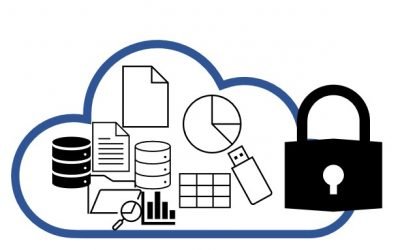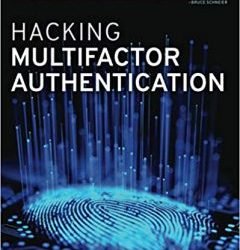The Trillion dollar industry
At the time of writing, the Waikato DHB cyber-attack is ongoing. The government is refusing to pay the ransom as a point of principle, and it looks like every possible tool at their disposal is being used to try to recover the situation.
Should they just pay the ransom? Or should the government go further and make it illegal to pay ransoms in New Zealand? That’s the question that Minister Kris Faafoi is having to assess at the moment. DHB attack: Why Justice Minister Kris Faafoi won’t make it illegal to pay a cyber-ransom – NZ Herald
Cyber crime is big business. We’ve called it organised crime in previous articles and we’re happy to stick with that. These organisations recruit the best and brightest out of the top universities, and give them both the latest tools and time to wreak havoc. Their recruits are paid astronomical sums to work for them, overcoming any moral objections with immorally large pay checks. These paychecks are funded by the proceeds of previous hacks. Every time they are paid, their war chest is strengthened. For example, we recently saw the Colonial Pipeline in the eastern US get hacked for 75 bitcoins (just under US$4M) which went to a criminal group called ‘Darkside”.



So, will cutting off payments stop their attacks by removing the incentive?
These criminals are smart and highly motivated. They seem to have no conscience but plenty of greed. Waikato is not only the hospital being brought down – there was a huge wave of hospital attacks in the US in October, just a few months ago – Several hospitals targeted in new wave of ransomware attacks – CNNPolitics.
I don’t know how Waikato DHB got infected, but the rumour is that it was from phishing attacks onto machines that weren’t fully patched up to date. We don’t know if that is true, but it is a common attack vector. Once a hacker gets into a system, they often hold back and try to dig further looking for more vulnerabilities they can exploit. The more damage they can cause, the more ransom they can demand, so they will often use one vulnerability to find the next, and so on until they finally have enough to bring the house down.
Security is all about layers. There is NO way to prevent attacks, and it is impossible to guarantee that any system is invulnerable. We saw that with the recent Hafnium attack where a vulnerability was exploited before patches were available to block it. But the more layers of security, the harder you make it, and you reduce the scope of any harm.
Today, even if you have the best backups and can recover the system, the hackers then threaten to release the data you hold to media or competitors. In the case of the Waikato DHB, it is being reported that personal data is being released to media by the hackers to increase pressure, even as they fail to stand their systems up.
As to paying the ransom, I suspect your perspective changes when your business, your job or livelihood is threatened. Not an easy decision and hopefully one we can avoid by being paranoid.
The best solution we can recommend is to check your cyber insurance and to apply the best security you can reasonably afford, which should be more than you had last year. Expect it to be more again next year as new tools and new threats emerge. Consider managed security solutions like our KARE for Security and more advanced KARE for Security S2 plans.
We don’t know where this will end, or if it will end, but let’s hope so. It is such a drain on our resources and holds us back from investing in tools that make us more productive.
Zero-Trust IT Security
'Zero-Trust' is a tough headline. Zero-trust in a world where we trust people all the time is an unpleasant concept. We trust that when we order a package online, that the vendor will take our order and not just our money, that our product will be passed to a courier...
HAFNIUM Microsoft Email Attack
Over the last few days, you may have read about a zero-day attack impacting Microsoft Exchange Servers. We became aware of this vulnerability on Wednesday last week (it was discovered on the 2nd in the USA so we were on to it immediately, allowing for time-zones) . ...
5 simple steps to stay cloud-cyber-secure
We’ve posted repeatedly about cyber-security and the need to be more vigilant and more careful, and we’ve shared real-world stories to reinforce the concern. It’s a concern then that we still see a number of organisations that remain reluctant to increase their...
Cyber-risk mitigation – why Multi-Factor Authentication (MFA) is vital, but NOT enough
We keep making the point that nothing can guarantee you won’t be hacked. But you can, and must, mitigate your cyber-risk. We think tools like Multi-Factor Authentication is crucial for protecting your IT systems – and MFA should be on EVERYTHING you use – your email...
The Worst Hack in US History
In the last week, we’ve seen two major successful attacks on critical US IT management and Cyber security tools. The first we learned about was on FireEye which is one of the leading and most trusted cyber security tools, used by much of the Fortune 500. ...
Look out for more ransomware in 2021
2020 saw a crazy amount of ransomware attacks. We've warned repeatedly of the increasing sophistication and organisation of these bad actors. Names like RangarLocker and Dharma are cyber-businesses or do it yourself cyber-crime kitsets designed to cause havoc for...
DDOS – Distributed Denial of Service Attack (aka what went wrong at the NZ Stock Exchange)
Denial of Service (aka what went wrong at the NZX?) In September the NZ Stock Exchange was the victim of an attempted extortion via a DDOS attack. The attack took them offline serval times over a number of days. Many business are now asking, what is DDOS and could...
Keeping our Security tools up to speed
Cyber-crime is estimated to earn criminals US$7 Trillion a year That sort of money buys cyber criminals a lot of resources. It’s no surprise then that cybercrime has its own support industries. You don’t need to access the "Darknet" to purchase hacker tools. Many...
GOOD PROCESS WASN’T GOOD ENOUGH – SCAMMERS STILL WON
In August we all heard about Team NZ falling prey to a $2.8 million invoice payment fraud. It was the now-familiar story of a fake or hacked email, asking for payment to go to a different bank account. We should all be familiar with these tales by now. I’m sure that...
What is Double Key Encryption and why should you care?
Double Key Encryption (DKE) is coming soon to Microsoft 365 (E5 plans required) Like the name suggests, this is even MORE secure than the levels of encryption previously seen. Microsoft are saying that you need it if: You want to ensure that only you can ever decrypt...









